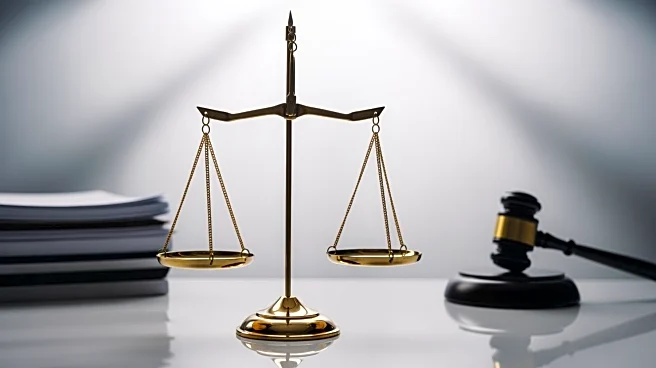What's Happening?
Craig, Kelley & Faultless, a law firm specializing in personal injury litigation, has been recognized as a Tier 1 firm in Indianapolis by Best Law Firms® for the sixth consecutive year. This distinction highlights the firm's expertise and excellence in handling
personal injury cases, particularly those involving semi-truck accidents. The firm is led by attorneys David W. Craig, William (B.J.) Kelley, Scott A. Faultless, Alexander Craig, and Christopher Barry, all of whom have been recognized by The Best Lawyers in America®. The firm operates in multiple states and is known for its commitment to helping clients recover from serious injuries and losses.
Why It's Important?
The recognition of Craig, Kelley & Faultless as a Tier 1 firm underscores the firm's reputation and influence in the field of personal injury law. This accolade not only enhances the firm's credibility but also assures potential clients of its capability to handle complex cases effectively. The firm's specialization in semi-truck accident cases is particularly relevant given the increasing number of such incidents, highlighting the need for expert legal representation. This recognition may attract more clients seeking reliable legal assistance, thereby impacting the firm's business growth and the broader legal industry.
What's Next?
With this recognition, Craig, Kelley & Faultless is likely to continue expanding its influence and client base, potentially leading to further growth and development. The firm may leverage this accolade to enhance its marketing efforts and attract more high-profile cases. Additionally, the firm's attorneys may continue to contribute to legal discourse through publications and media appearances, further solidifying their position as leaders in personal injury law.
Beyond the Headlines
The firm's focus on personal injury litigation, particularly involving semi-truck accidents, highlights broader issues related to road safety and the legal complexities of such cases. As the firm continues to handle these cases, it may contribute to discussions on improving safety regulations and policies to prevent accidents and protect victims.
















